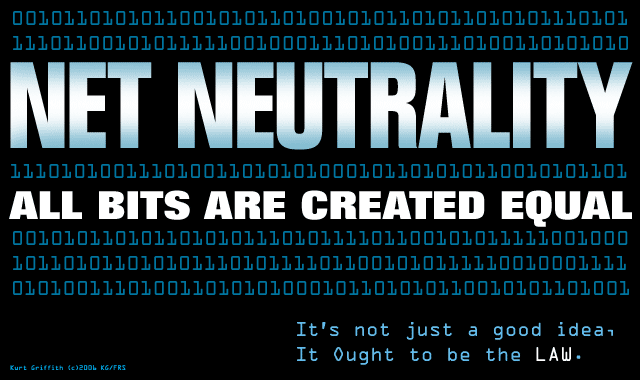

Net Neutrality: Prevent 'Communalization' of Internet
TRAI had earlier this year given hope to those fighting for unfettered access to the internet, without disruptive and discriminatory pricing by telecom operators. It had promised to stand up for net neutrality. It had issued a consultation paper and after hearing representations from all stakeholders and the general public, it had decided to ban differential pricing by service providers. In its order, TRAI had said that:By Sunil Garodia
First publised on 2016-09-03 06:50:20
1. No service provider can offer or charge discriminatory tariffs for data services on the basis of content.
2. No service provider shall enter into any arrangement, agreement or contract, by whatever name called, with any person, natural or legal, that the effect of discriminatory tariffs for data services being offered or charged by the service provider for the purpose of evading the prohibition in this regulation.
3. Reduced tariff for accessing or providing emergency services, or at times of public emergency has been permitted.
4. Financial disincentives, in the form of fine of Rs 50000 per day up to a maximum of Rs 50 lakh, for contravention of the regulation have also been specified.
5. TRAI may review these regulations after a period of two years.
Its above order in February 2016 had killed the plans of Facebooks FreeBasics and Airtels Zero to offer content driven closed internet experience to subscribers at near zero charges. The services were supposed to earn profit from either showcasing content or advertisements or revenue sharing with content providers to their expected huge user base. Supporters of net neutrality had rejoiced then.
But unfortunately, TRAI had left open a grey area. In the above order, it had also said that differential tariffs being offered for data transmitted over closed electronic communication network (CECN), such as intranets, are not prohibited by these regulations. Since it did not clarify how these CECNs were to operate, it effectively allowed telecom operators to create gated communities of content and provide them free or at heavily discounted rates to subscribers, limiting their choices and internet experience in a market like India that is largely driven by low prices.
This exemption had created a lot of confusion and provided an opportunity to telecom operators to demand that differential pricing be allowed per se. First Airtel and then Cellular Operators Association of India (COAI) wrote to TRAI to review its decision and allow differential pricing irrespective of whether it was provided within a gated community or open internet.
Basically, operators are seeking clarification from TRAI on two issues:
1. Can telecom service providers share advertising revenue with a content provider who is providing exclusive content to their subscribers at a subsidized rate?
2. Can content providers offer subsidized subscription of its content to select or all subscribers of any telecom operator and if so, will that constitute a CECN?
This led TRAI to issue another consultation paper on net neutrality on 19th May 2016. In this paper, TRAI referred to its earlier order and issues that cropped up after it and asked for feedback on three specific questions:
Question 1: Is there a need to have TSP agnostic platform to provide free data or suitable reimbursement to users, without violating the principles of Differential Pricing for Data laid down in TRAI Regulation? Please suggest the most suitable model to achieve the objective.
Question 2: Whether such platforms need to be regulated by the TRAI or market be allowed to develop these platforms?
Question 3: Whether free data or suitable reimbursement to users should be limited to mobile data users only or could it be extended through technical means to subscribers of fixed line broadband or leased line?
As TRAI grapples with the question of differential pricing and the forms it could take, one thing is clear. Internet needs to be neutral to provide unlimited free choices to the user in order not to skew his online experience. Any gated community that restricts these choices, even if it is free of upfront charges, defeats the very meaning of internet and makes the medium an intranet and works against net neutrality. Each telecom entity will then have its own gated community and users may think that the internet is restricted to only that particular community.
The possibilities are scaring. Lets assume operator A has his gated community which it calls XYZ. Another operator calls his community ABC. Now let us suppose that each of these communities ties up with various entities in different fields like health, insurance, music and education to name just four services. A person searching for, say, Apollo Hospitals might not get any result in community XYZ if Apollo has not tied up with that operator to have its content in that community. Similarly, a person searching for IIM might not find anything in ABC community if the IIMs choose not to be there. Since the telecom operators will act as gatekeepers of the community by admitting websites on payment or revenue sharing, they will drastically restrict the choices and internet experience of the users. This goes against the very concept of internet which was devised as the information highway to which anyone could have unrestricted access by just paying the telecom operators fee. Communalization of the internet is despicable and should be prevented at all costs.











